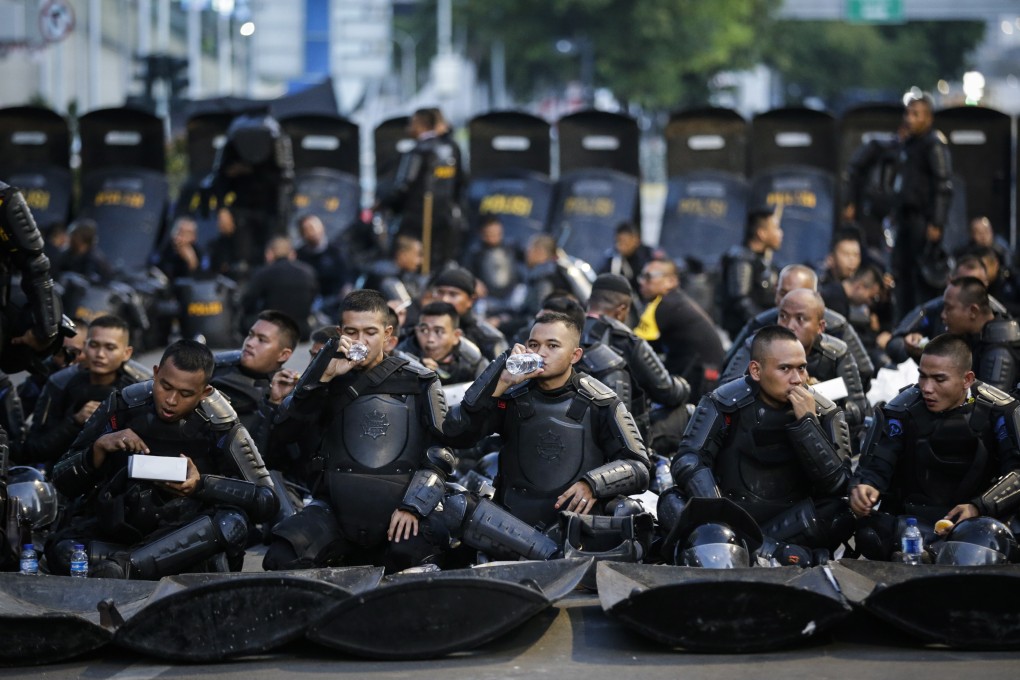Advertisement
Indonesia on alert for more riots before court hearing on whether April 17 election was rigged
- The first hearing on losing presidential challenger Prabowo Subianto’s claims will take place on June 14, with a decision expected by June 28
- The country’s defence minister last week warned of ‘bigger riots’ after the May 21-22 Jakarta clashes that saw eight killed and more than 400 arrested
Reading Time:4 minutes
Why you can trust SCMP

Indonesia is on alert for riots this week, ahead of Friday’s first hearing by the Constitutional Court on losing presidential challenger Prabowo Subianto’s claims the April 17 election was rigged.
Indonesian defence minister Ryamizard Ryacudu last week warned of “bigger riots in June” compared with the May 21-22 clashes in Jakarta between Prabowo’s supporters and security forces. Eight people died and hundreds more were injured, while 442 protesters, mostly young men, were arrested.
Analysts expect the Prabowo camp to have an uphill battle in court, given the lack of evidence produced by the former general’s team. A decision is expected by June 28.
Advertisement
But prominent human rights group Setara Institute said it feared Prabowo was not capable of controlling his supporters from hardline religious and political groups, who wanted to stir up chaos and create an atmosphere of uncertainty to oppose incumbent President Joko Widodo’s re-election.
Widodo, popularly known as Jokowi, won 55 per cent of the vote and will be sworn in on October 20.
Advertisement
“Right from the start, hardliners, extremists and right-wing conservatives are not under Prabowo’s control as they have their own agenda,” said Hendardi, head of Setara Institute.
Advertisement
Select Voice
Choose your listening speed
Get through articles 2x faster
1.25x
250 WPM
Slow
Average
Fast
1.25x